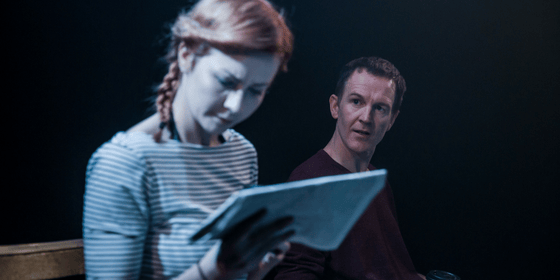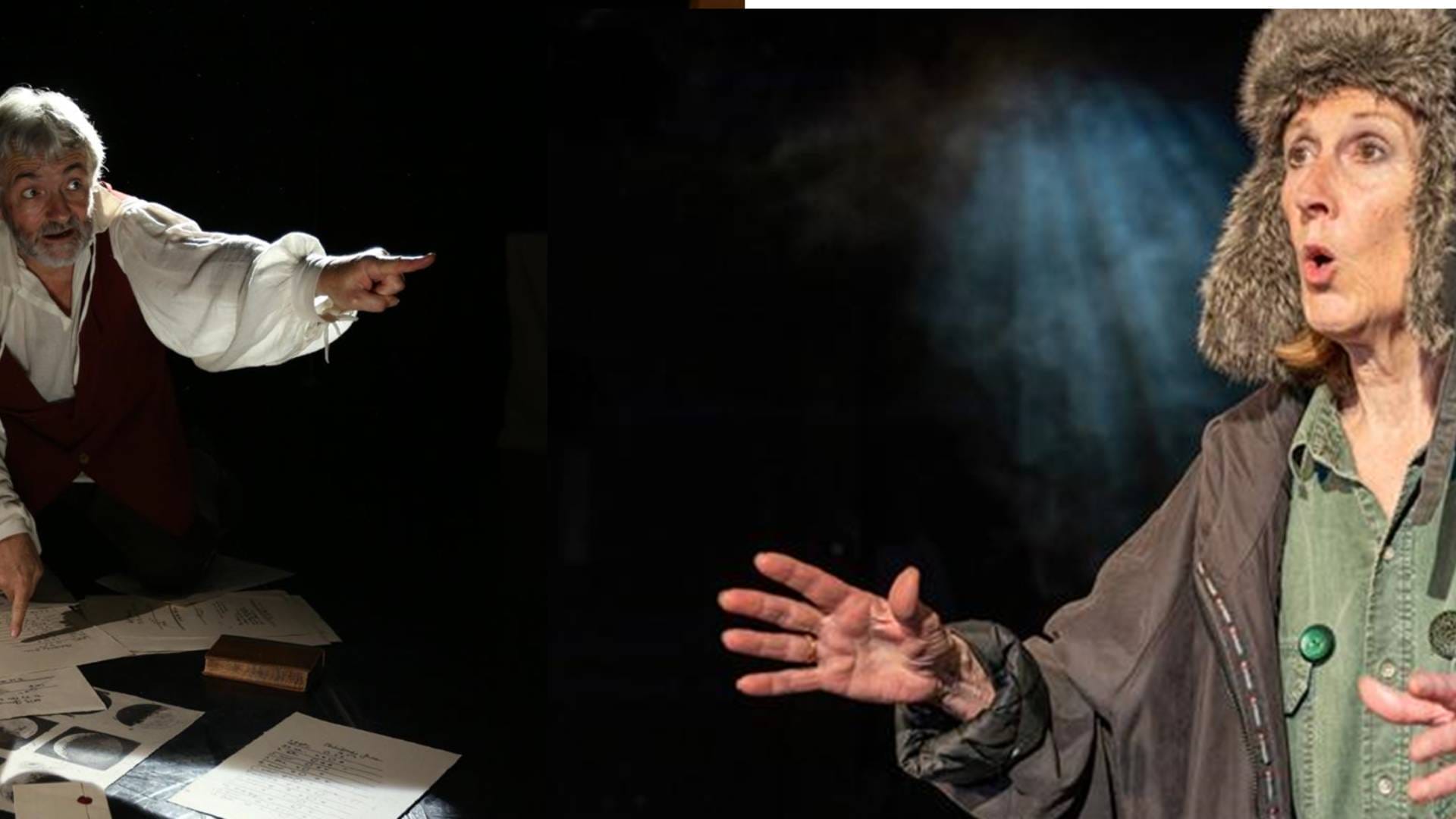Tiny Dynamite, by award-winning playwright and screenwriter Abi Morgan, comes to the Old Red Lion Theatre this January. Returning to London for its first professional revival in 15 years, this play explores how tiny events from our pasts can have explosive effects on our futures.
Since writing Tiny Dynamite, Morgan has written critically-acclaimed screenplays including Shame, starring Michael Fassbender and directed by Steve McQueen and The Iron Lady, starring Meryl Streep and Olivia Coleman.
We spoke to Tiny Dynamite director David Loumgair about this new production.
You’re directing Tiny Dynamite at The Old Red Lion Theatre, what can you tell us about it?
Well without giving too much away, the story follows two childhood friends, Lucien and Anthony, who both experienced the same deeply traumatic event at an early age.
This trauma impacts them in different ways, and has led them down very different paths in life, but each summer they come together for an annual holiday to the countryside. The play begins almost ten years after this event, and follows their last summer together, where a mysterious and magnetic young woman called Madeleine suddenly enters their lives and has a profound effect on the two friends.
The three immediately form a close bond, but as the play develops we follow the effect of this new relationship on the shared trauma of the childhood friends. Madeleine’s arrival acts as the catalyst for Lucien and Anthony to start confronting the pain that has left them scarred and incapable of moving on with their lives, building like a pressure cooker towards the moment where the pair must finally stop burying their pasts and face the truth.
That’s about as much as I can say without ruining it, but a good way of describing it is as a love story meets a ghost tale meets a psychological thriller, so hopefully that’s enough of a hook for people to come along!
How did you become involved in the project?
I became involved in the project almost three years ago. I directed Niall Bishop, one of the actors in our cast of TINY DYNAMITE, in a one-man production called A PRAYER by Selma Dimitrijevic in 2015. It was a modest project that we staged at the Hen and Chickens Theatre, which ended up as a five-star show that received an incredibly positive response from audiences and critics.
After the show had closed, I said to Niall and our producer Ian Grant that were we to work together again, TINY DYNAMITE was the play I wanted to direct.
Niall and Ian went on to found Time Productions, whose mission is to build a sustainable model of producing new work and reviving classics that strikes a personal chord with audiences, with diversity and the creation of leading roles for actors from under-represented backgrounds at its heart. These values are very close to my own, so it felt like the perfect marriage when they said they would produce the revival of TINY DYNAMITE.
It’s now incredibly difficult to produce new work on the London fringe, and so I owe them a great deal, because of rising business rates that have a huge impact on unfunded theatres, and an admirable push for equity pay for actors and creatives, but this push for equity mean budgets are getting higher at a time where public funding is getting lower.
What are the challenges, or benefits, of directing in a small theatre?
By far the greatest benefit of directing in a small theatre is the intimacy the actors can build with audiences. There’s less than a metre between the seating and the stage, so audiences can see all the authenticity and raw emotion the actors are pouring in to their characters. It creates a charged and magnetic atmosphere that I think is lost, or certainly takes a colossal amount of energy and skill to create, in larger spaces.
It doesn’t come without its challenges though. The design of TINY DYNAMITE uses a vast amount of water, and in a room above a pub there are many health and safety restrictions that we have to adhere to, so it can be difficult to try and push the boundaries of fringe theatre design as we aimed to. But our designer, Anna Reid, has faced the challenge head-on and created something truly breath-taking, which if I do say so myself defies what you would expect to see in a fringe venue.
It’s been 15 years since Tiny Dynamite was last professionally staged in London, how do you think it’s still relevant today?
Primarily I think TINY DYNAMITE is about the relationship between grief and recovery, and how we can support each other in overcoming pain. It explores the impact of trauma on our lives and asks when we should take responsibility for our actions, and shows us the strength of humanity to find hope through the most traumatic of experiences.
2017 was without a doubt an absolute shocker of a year, filled with a huge amount of trauma for many. I think it makes TINY DYNAMITE relevant today because it shows the power of relationships and love to overcome the pain and grief, and that by allowing ourselves to be vulnerable to experiencing pain, we can become stronger because of it.
How do you build the tension on stage that Abi Morgan has written in the script?
A lot of the tension comes from the strength of Abi’s writing, but the main way I approached building the tension on stage was by encouraging the actors to explore weighted silences and pregnant pauses.
What Abi doesn’t write into the play is just as important as what she does write, and there are countless layers of subtext that I hope come through in the production. I think it’s quite rare for a play to leave such long silences, but Abi uses silences so effectively and clearly notes where something is being avoided or unspoken. With that framework and a strong understanding of how the narrative progresses, it was a challenging but fascinating exploration of building tension on stage.
There’s also a very clear rhythm to the text, as the first half of a scene will be very pacey, but without warning a scene will switch to become incredibly still and tense. Abi explores that rhythm expertly, and there are energy changes which are very clear to the actors in each scene.
How have you found working with the cast?
The cast have been absolutely phenomenal, they’ve been so open to exploration and have pushed themselves immensely during rehearsals. I like to think I’m quite a collaborative director, and I’m often keen to facilitate debate within a company of actors, so it was brilliant to explore lots of different perspectives in scenes and with relationships.
When we began talks with Abi Morgan about reviving the play, I felt very strongly about changing the gender of the character of Lucien from male to female, because of the oversaturation of male-driven narratives that have without question dominated theatre for far too long. For this production only Abi kindly gave me permission to do so, and it’s an exciting change that brings an entirely new dynamic to the relationships between the characters for our revival.
Lucien is being played by the phenomenal Eva-Jane Willis, who has a raw talent for conveying both fragility and deeply affecting moments of strength on stage. Niall Bishop is playing her childhood friend, Anthony, who is struck by lightning when he’s six years old and subsequently has a strangely magical effect on his surroundings. Niall is a tour-de-force who has an instinctive ability to create truly intimate relationships with the audience through his monologues, which feel so effortless and help pull the audience in to the story.
And last, but certainly not least, we have Tanya Fear playing Madeleine, a magnetic young woman who has a profound effect on the two childhood friends. Tanya has an innate openness, friendliness and camaraderie which are the core elements of the character, so not only does she play Madeleine with real mesmerism, but her warmth during rehearsals has helped bring the company together.

















